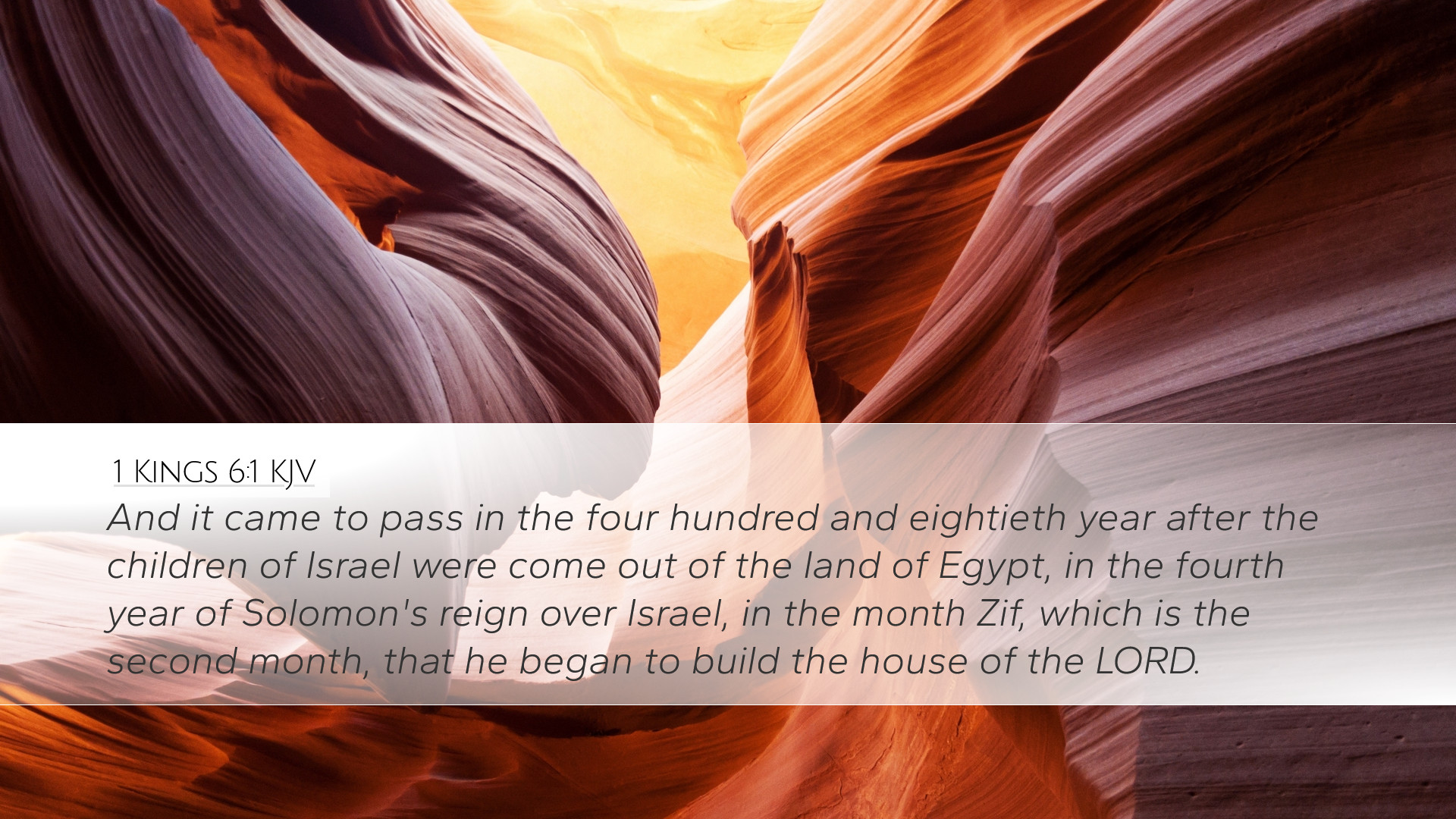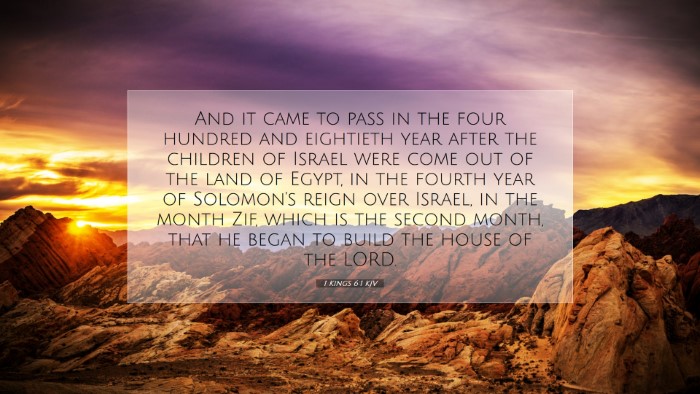Commentary on 1 Kings 6:1
"And it came to pass in the four hundred and eightieth year after the children of Israel were come out of the land of Egypt, in the fourth year of Solomon's reign over Israel, in the month Zif, which is the second month, that he began to build the house of the Lord."
Introduction
This verse marks a pivotal moment in Israel's history, as it announces the commencement of the construction of the temple in Jerusalem under King Solomon. Drawing insights from ancient public domain commentaries, we uncover profound theological implications and historical context surrounding this significant event.
Historical Context
Matthew Henry notes that the timeline of 480 years since the Exodus serves to connect God's promises and faithfulness to Israel's history. This reference highlights the covenant relationship God established with His people, marking a new chapter as they transition from wilderness wanderings to a settled life centered around divine worship.
Albert Barnes emphasizes the importance of the month Zif, which corresponds to late April or early May, symbolizing spring and renewal—a fitting time for a fresh act of devotion through the building of the temple.
Theological Significance
Adam Clarke points out that the temple signifies God's desire to dwell among His people. This act of building depicts a tangible expression of God's presence and a fulfillment of the promise made to David, Solomon's father. Such a sacred site serves as a focal point for Israel's worship and an emblem of their national identity.
Moreover, the 480-year period serves as a reminder of God's patience and faithfulness. The verse conveys that while the Israelites traversed the desert for 40 years, the establishment of a permanent dwelling for God took generations to realize, signifying the extraordinary covenant faithfulness of the Lord.
Restoration and Legacy
The construction of the temple is not only an architectural event but also a pivotal act of national restoration. Matthew Henry discusses how this marks a new era of stability for Israel, bringing the nation into a period of prosperity and covenant fidelity. The temple becomes a symbol of hope, a place where the people could come to seek God's presence, turning their hearts toward Him.
Barnes adds that this event sets the stage for future generations. The temple, as the center of worship, would shape Israel's faith and culture. It creates a lasting legacy of devotion that would echo through the centuries, influencing not just Israel, but also surrounding nations.
Practical Applications
For pastors and theologians, this verse serves as a reminder of the importance of proper worship and reverence for God's presence in the church today. Just as Solomon dedicated time and resources to construct a place for God, contemporary leaders are called to foster environments where believers can encounter God authentically.
- Encouragement of Divine Presence: The temple emphasizes the necessity of inviting and acknowledging God's presence in all endeavors.
- Covenant Fidelity: Reflecting on God's faithfulness encourages a commitment to live out the covenant relationship in modern contexts.
- Legacy of Worship: In nurturing a culture of worship, congregations can inspire future generations to continue pursuing God's heart.
Conclusion
The commencement of temple construction represents much more than mere architecture; it encapsulates the journey of God's people, the fulfillment of promises, the significance of worship, and the role of leaders in guiding their congregations toward devotion and fidelity. As we study 1 Kings 6:1, we are reminded of our call to honor God in every aspect of our lives, recognizing His desire for a deep, abiding relationship with us.


